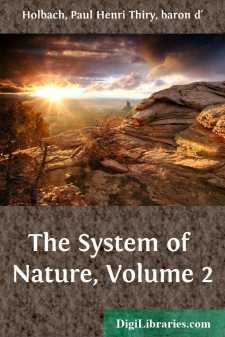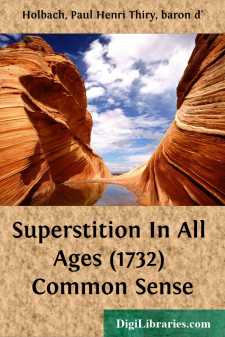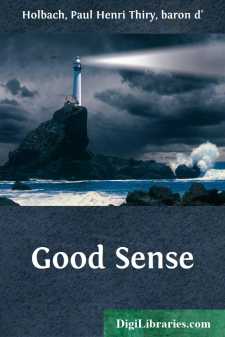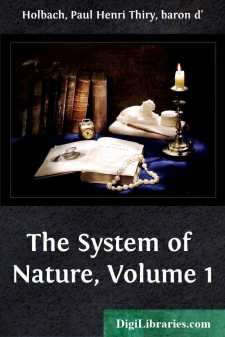Categories
- Antiques & Collectibles 13
- Architecture 36
- Art 48
- Bibles 22
- Biography & Autobiography 813
- Body, Mind & Spirit 142
- Business & Economics 28
- Children's Books 17
- Children's Fiction 14
- Computers 4
- Cooking 94
- Crafts & Hobbies 4
- Drama 346
- Education 46
- Family & Relationships 57
- Fiction 11829
- Games 19
- Gardening 17
- Health & Fitness 34
- History 1377
- House & Home 1
- Humor 147
- Juvenile Fiction 1873
- Juvenile Nonfiction 202
- Language Arts & Disciplines 88
- Law 16
- Literary Collections 686
- Literary Criticism 179
- Mathematics 13
- Medical 41
- Music 40
- Nature 179
- Non-Classifiable 1768
- Performing Arts 7
- Periodicals 1453
- Philosophy 64
- Photography 2
- Poetry 896
- Political Science 203
- Psychology 42
- Reference 154
- Religion 513
- Science 126
- Self-Help 84
- Social Science 81
- Sports & Recreation 34
- Study Aids 3
- Technology & Engineering 59
- Transportation 23
- Travel 463
- True Crime 29
The System of Nature, Volume 2
Description:
Excerpt
CHAP. I.
The Origin of Man's Ideas upon the Divinity.
If man possessed the courage, if he had the requisite industry to recur to the source of those opinions which are most deeply engraven on his brain; if he rendered to himself a faithful account of the reasons which make him hold these opinions as sacred; if he coolly examined the basis of his hopes, the foundation of his fears, he would find that it very frequently happens, those objects, or those ideas which move him most powerfully, either have no real existence, or are words devoid of meaning, which terror has conjured up to explain some sudden disaster; that they are often phantoms engendered by a disordered imagination, modified by ignorance; the effect of an ardent mind distracted by contending passions, which prevent him from either reasoning justly, or consulting experience in his judgment; that this mind often labours with a precipitancy that throws his intellectual faculties into confusion; that bewilders his ideas; that consequently he gives a substance and a form to chimeras, to airy nothings, which he afterwards idolizes from sloth, reverences from prejudice.
A sensible being placed in a nature where every part is in motion, has various feelings, in consequence of either the agreeable or disagreeable effects which he is obliged to experience from this continued action and re-action; in consequence he either finds himself happy or miserable; according to the quality of the sensations excited in him, he will love or fear, seek after or fly from, the real or supposed causes of such marked effects operated on his machine. But if he is ignorant of nature, if he is destitute of experience, he will frequently deceive himself as to these causes; for want of either capability or inclination to recur back to them, he will neither have a true knowledge of their energy, nor a clear idea of their mode of acting: thus until reiterated experience shall have formed his ideas, until the mirror of truth shall have shewn him the judgment he ought to make, he will be involved in trouble, a prey to incertitude, a victim to credulity.
Man is a being who brings with him nothing into the world save an aptitude to feeling in a manner more or less lively according to his individual organization: he has no innate knowledge of any of the causes that act upon him: by degrees his faculty of feeling discovers to him their various qualities; he learns to judge of them; time familiarizes him with their properties; he attaches ideas to them, according to the manner in which they have affected him; these ideas are correct or otherwise, in a ratio to the soundness of his organic structure: his judgment is faulty or not, as these organs are either well or ill- constituted; in proportion as they are competent to afford him sure and reiterated experience.
The first moments of man are marked by his wants; that is to say, the first impulse he receives is to conserve his existence; this he would not be able to maintain without the concurrence of many analogous causes: these wants in a sensible being, manifest themselves by a general languor, a sinking, a confusion in his machine, which gives him the consciousness of a painful sensation: this derangement subsists, is even augmented, until the cause suitable to remove it re-establishes the harmony so necessary to the existence of the human frame....






